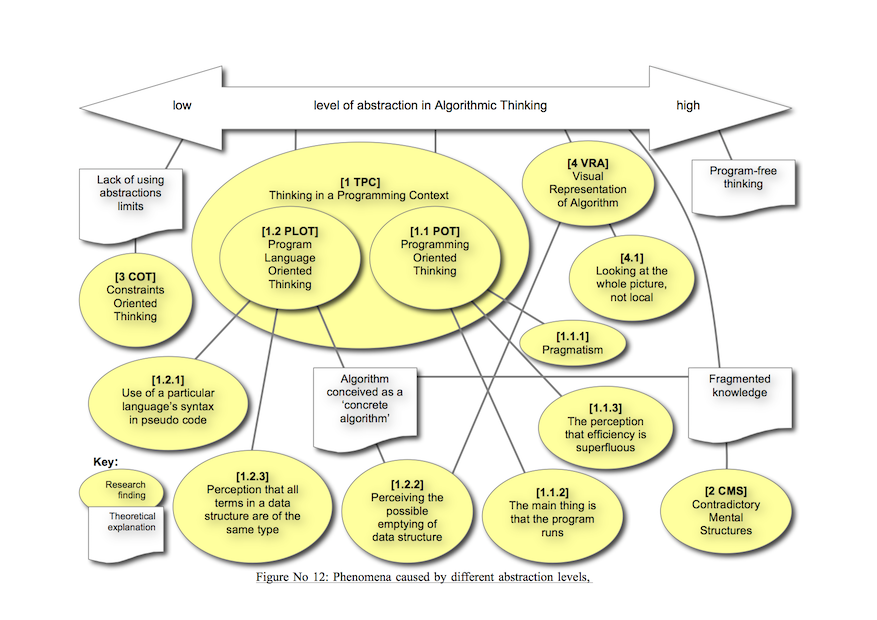PhD supervisor for Nili Naveh
| When |
Jul 25, 2002
to
Jun 25, 2005 |
|---|---|
| Where | Chelmsford |
Nili's dissertation is available through the British Library's Ethos service.
Abstract
"Algorithmic Thinking" is a complex intellectual process of thinking. An algorithm can be defined as a collection of unambiguous executable instructions, whose step by step execution leads to a predefined goal, within a finite number of steps. Algorithmic Thinking in this research means thinking about algorithms, creating, building and solving problems with algorithms.
The research presented here, is the first investigation into the development of Algorithmic Thinking processes that take place as Israeli learners in middle school solve problems in computer science.
There is little research to be found related to the development of Algorithmic Thinking with middle school learners and findings in Computer Science and Computer Education concerned older students.
By contrast, in the field of mathematical education in general, and the psychology of mathematical education in particular, there is a wealth of research and accepted theories. Since Algorithmic Thinking is largely of a mathematical nature, studies from the fields of mathematical education and its psychology were used to review this topic and formulate a theoretical and conceptual framework.
One of the main purposes of the research was the construction of a new preliminary theory to describe thinking processes in this field, rather than to prove or refute predefined hypotheses. Consequently, the research was conducted according to a qualitative model, inductively, using the Grounded Theory approach, and it is presented as a case study. The main tool for data collection is the semi structured, ethnographic observational interview. The research took place over two years, and in that time interviews were conducted with 22 pupils from one class in a Tel Aviv Middle School.
The material was analyzed in the light of constructivist approach, which holds that knowledge must be formed in the mind of the learner, due to activities the learner experiences. The constructivist approach provides notions on human thinking, such as the theory of actions-process-object and the fragility of knowledge. These theories are used as explanations for the phenomena found in this study. Another theory used in the data analysis in the research findings, was the Prototype Theory of Eleanor Rosch.
The findings of the research were grouped under Cognitive factors and Affective factors. The main finding is students' low level of abstraction of algorithmic concepts, leading to difficulties in solving problems. The findings are summarized into a model of phenomena identified at different levels of abstraction, and relationship between them.
Using this Grounded Theory approach, the research built new theory which is the contribution to knowledge. This research also makes a practical contribution, as its results have implications for computer science teaching in Israeli Middle schools. The central recommendation is to prepare a work environment including data structure and actions independent of any programming language, and create suitable activities for the study and development of algorithmic thinking. In this way it may be possible to accelerate the students' advance towards higher levels of abstraction, while minimizing the phenomena that have such a negative effect on their problem solving processes.
Findings

(Words: 592 )


